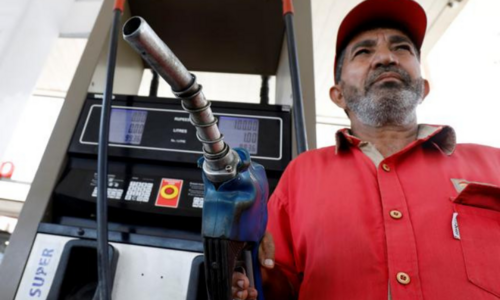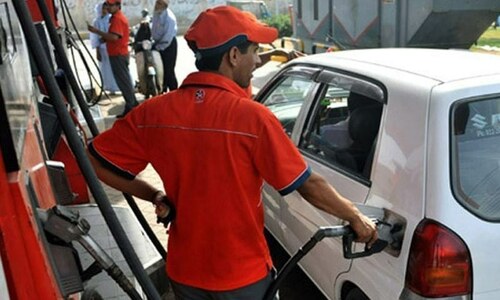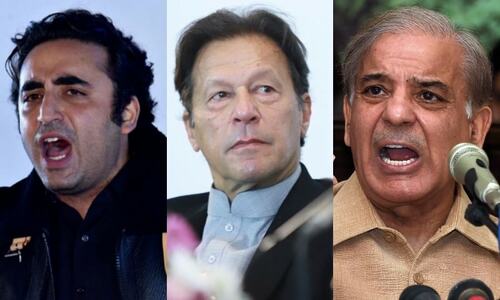ISLAMABAD: The prices of all key petroleum products are estimated to go up in a range of about Rs5-15 per litre on Monday (Jan 31) for the next fortnight mainly because of higher international oil prices and application of additional petroleum levy (PL).
Informed sources said that based on existing tax rates, import parity price and exchange rate, the prices of petrol (motor gasoline) and high-speed diesel (HSD) had been worked out to go up by about Rs5.85 and Rs10.70 per litre, respectively. Likewise, the price of kerosene and light diesel oil (LDO) was also estimated to go up by about Rs10 and Rs9 per litre, respectively.
With the addition of Rs4 per litre committed with the IMF, the sale price for HSD works out to be about Rs14.70 and followed by Rs9.85 per litre for petrol. However, an official said the government may have to reduce the general sales tax on petroleum products if it decides to avoid public outcry and minimise inflationary pressure on the people.
At present, GST at the rate of Rs2.9 per litre (2.5pc) is applicable on petrol, Rs4.50 per litre (5.44pc) on HSD, Rs5.26 (8.30pc) on kerosene and about Rs2.80 (2.7pc) on LDO. The official said the government had a choice to completely or partially give up GST on petrol and HSD to contain rising oil prices.
The official said the government also had the option to delay the application of an additional Rs4 per litre petroleum levy on petrol and HSD but its chances were bleak given the fact that the executive board of the International Monetary Fund is scheduled to meet on Feb 2 to consider the revival of its $6 billion programme. The government may not like to disturb the smooth process after completing all the prior actions including the approval of the SBP Amendment Act with great pain.
The government has been increasing petroleum levy and GST on an alternate fortnight basis in recent months as part of the dialogue with the IMF but had slightly reduced GST on major products on Jan 15 as well. The rate of PL has gone up by Rs4 on the first of every month with the commitment with the IMF to take it to a maximum of Rs30 per litre. The GST adjustments have been taking place on the 15th of each month depending on the price cushion. At present, the government has been charging about Rs32 per litre taxes on petrol and about Rs28 per litre on HSD.
The ex-depot price of petrol currently stands at Rs147.83 per litre and that of HSD at Rs144.62 per litre.
Petrol is mostly used in private transport, cars, rickshaws and motorbikes and has a direct bearing on the budget of middle- and lower-middle-class while HSD price is considered highly inflationary as it is mostly used in heavy transport vehicles, trains and agricultural engines like trucks, buses, tractors, tube-wells and threshers.
The ex-depot price of LDO at present is Rs114.54 per litre and the kerosene rate is Rs116.48 per litre. LDO is consumed by flour mills and a couple of power plants while kerosene is mostly used by unscrupulous elements for mixing it with petrol and to some extent for lighting in very remote areas.
Published in Dawn, January 29th, 2022













































